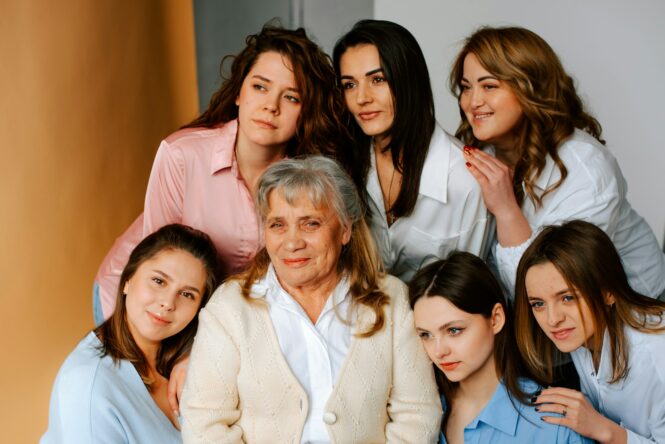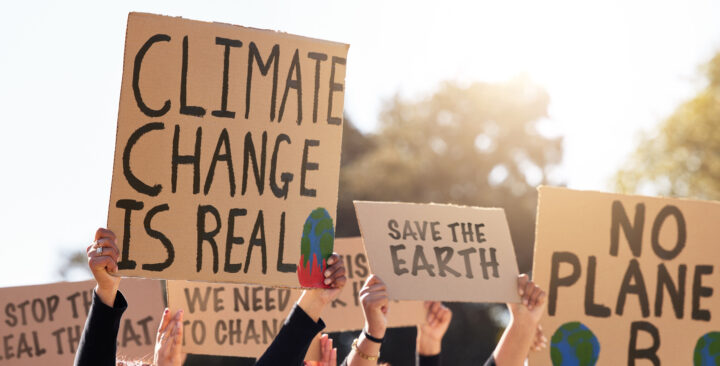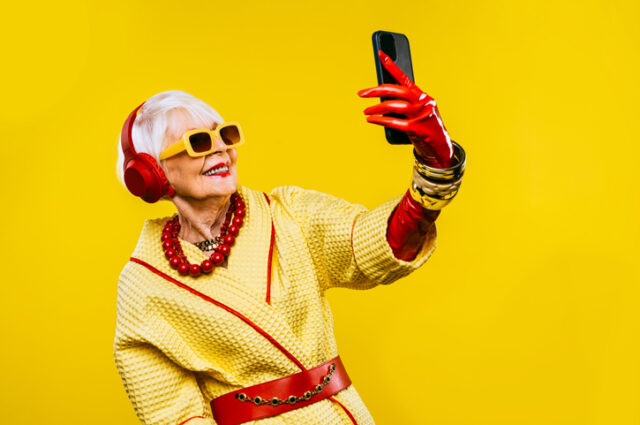Every generation loves to feel like they’re breaking new ground, that they’re the first to rebel, innovate, or think differently from everyone before them.

However, if history has taught us anything, it’s that most “new” ideas aren’t new at all. They’ve just been repackaged, refreshed, and given a new slang term or trend name. Here are just some of the things every generation swears they invented, even though history was way ahead of them—and why it’s oddly comforting to know we’re all part of a much bigger cycle than we realise.
1. Rebelling against the system

Every generation believes they’re the first to question authority and demand something better. Whether it was the hippies challenging the Vietnam War, the punk movement rejecting mainstream culture, or modern Gen Z pushing for social justice and climate action, rebellion is a timeless coming-of-age ritual. It’s the beating heart of youth culture, giving each new wave a sense of purpose and urgency.
It’s not that their causes aren’t important—they absolutely are!—it’s just that history shows rebellion is almost a rite of passage rather than a rare phenomenon. Every generation needs to break away from what came before to find out who they are, and the world keeps spinning because of it.
2. Wearing “shocking” fashion

Today’s ripped jeans, visible thongs, oversized everything, and gender-bending outfits feel like boundary-breaking statements—and they are, in their own way. But they’re also part of a long tradition of using fashion to challenge the rules. The flappers of the 1920s scandalised society with their short dresses and bobbed hair, just as the ’70s punks caused panic with ripped clothes and safety pins as jewellery.
Fashion rebellion is a historical constant. Every generation’s “what are you wearing?!” moment eventually becomes totally normal and even iconic a few decades later. So if your grandparents once shook their heads at your crop top, chances are they horrified their own parents with something just as bold.
3. Using slang adults “just don’t get”
 Source: Unsplash
Source: Unsplash Every young generation feels like they’ve cracked some secret code by inventing their own slang. From “groovy” to “tubular” to “lit,” new words pop up with every cultural shift, creating an in-group language that baffles anyone over 30. It’s half about identity, half about rebellion, and 100% about having something that feels uniquely yours.
Of course, slang is ancient. Teenagers in ancient Rome likely had their own lingo to annoy their elders. It’s just human nature to want to carve out a space of communication that feels new and rebellious, even if linguists can trace the cycle back thousands of years.
4. Drinking fancy coffee drinks

We love to think our obsession with artisanal coffee, matcha lattes, and cold brews is peak modern sophistication, but coffee culture dates way back to the 1600s. Early coffee houses were bustling hubs for intellectual debate, gossip, and even revolutionary plotting, all over tiny cups of strong, bitter brew.
The idea of sipping something sophisticated while chatting about the meaning of life is hardly new. We just added oat milk, seasonal syrups, and Instagram filters to the mix. The real tradition is community, caffeine, and a little bit of showing off, and that’s been going strong for centuries.
5. Prioritising mental health

There’s a massive and important push today for therapy, mindfulness, and emotional openness, and it feels revolutionary because it’s finally mainstream. But the core idea that mental wellbeing matters has deep roots in history, from ancient philosophies like Stoicism and Buddhism to early psychology movements in the 19th century.
What’s different now is how accessible and normalised the conversation has become. Every generation has wrestled with mental health struggles, but today’s openness about it is the real breakthrough, not the discovery that emotions need care.
6. Thinking hookup culture is something brand new

Modern dating apps might feel like they rewrote the entire dating rulebook, but casual relationships are nothing new. The Roaring Twenties were full of secretive flings and wild parties, while the 1960s and ’70s blew open the doors on open relationships and free love movements.
Sure, the tech changed, but the human need for connection, attraction, and sometimes just uncomplicated fun has always been there. The only real difference is now you can swipe right instead of needing to actually leave your house.
7. Complaining about “kids these days”

Grumbling about the younger generation is one of humanity’s oldest traditions. Even ancient philosophers like Socrates whined about how young people were lazy, disrespectful, and ruining the future. Sound familiar?
It’s weirdly comforting to know that eye-rolling at the next generation isn’t a new trend—it’s part of growing older. Every generation thinks they worked harder, behaved better, and knew more, and someday, today’s young people will probably say the same thing about whoever comes next.
8. Curating the perfect aesthetic

It’s easy to think our obsession with aesthetic living—Instagram grids, Pinterest boards, perfectly curated outfits—is a new phenomenon. But humans have always been about presentation, from Renaissance portrait sittings to the intricate room decor of the Victorian era.
Creating a beautiful life, even just on the surface, has been important for centuries. We just have better lighting, filters, and hashtags now. At its heart, it’s still about telling a story about who you are (or want to be) through the way you shape your world.
9. Demanding better work-life balance

Today’s conversations about burnout, hustle culture, and reclaiming personal time feel urgent and new. But work-life balance has been a dream people have been chasing since the dawn of civilisation—just ask the peasants who worked fields from sunup to sundown while dreaming of feasts and festivals.
Each new generation faces their own version of overwork and exhaustion, but the longing for a life that’s more than endless labour is universal. The only real difference now is that more people are speaking up loudly and unapologetically about it.
10. Believing their music will change the world

From protest anthems to power ballads, every generation thinks their music captures something no one else has ever felt so deeply. And in many ways, they’re right—music does shape culture, movements, and memories.
But music changing the world isn’t a new idea. It’s just part of how humans express hope, rage, love, and rebellion across time. Your life soundtrack might feel deeply personal (and it is), but it’s also woven into a much bigger human tradition.
11. Romanticising “simpler times”

We all have moments where we wish for a “simpler” past before smartphones, endless notifications, and overwhelming news cycles. But look a little closer, and every era had its own version of chaos, stress, and struggle.
The grass has always looked greener in hindsight. Romanticising the past is a way humans cope with the present, but remembering the messiness of every era helps keep that nostalgia in perspective.
12. Dreaming of escaping society

The fantasy of quitting everything and moving to a cabin in the woods feels super relatable right now, but it’s hardly a new urge. From monks retreating to caves to transcendentalists like Thoreau building cabins by ponds, the dream of unplugging and escaping is as old as civilisation itself.
There’s something timeless about wanting to step outside the noise and reconnect with something simpler. The good news? That desire isn’t weird. It’s one of the most human instincts we have, and it surfaces every time life feels a little too overwhelming.




